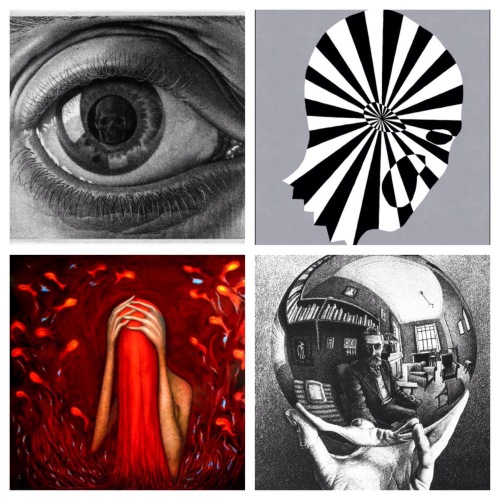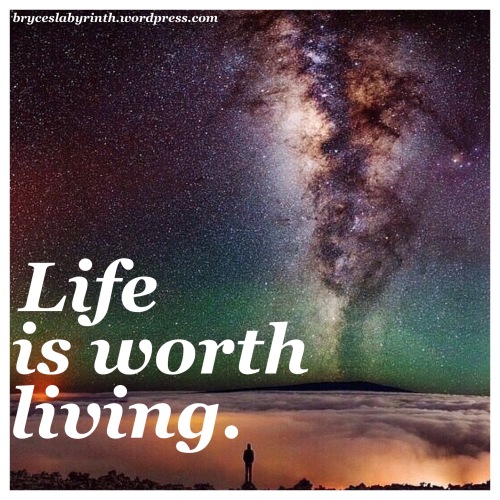Human
I have been chipping away at the sediment surrounding the human condition for several years attempting to bring its submerged secrets to light. This elucidation has afforded me many lengthy leaps in understanding, but only through a persistent augmentation of perspective via appropriate questioning. That is, in order to make sense of the answers I sought, I had to first make sense of the questions I was asking.
Complex Adaptation
Humans are fundamentally insane creatures.
We have two competing drives within experience, the need to satisfy one’s own existence and the compulsion to interact with others. The need to satisfy one’s own existence can be loosely thought of as the conglomeration of homeostatic processes and the actions the creature takes to maintain these non-conscious imperatives. Eating, drinking, and procreation all satisfy the demands of the organisms internal environment, but, the things which satisfy these demands all exist external to the body. This sets up the segue into the complex social behavior within which our species engages. In fact, natural language and its correlates in the brain have long been posited as the impetuses that have driven our evolution. As we competed with nature for resources, our reliance upon one another gave our species a particular fitness that allotted us the dominance we experience today.
These same evolutionary mechanisms, borne upon complex language, allowed for the abstract thought and higher cognitive processes endemic to the human organism. The issue has become that higher cognition while virtually identical as far as neural substrates go, is completely isolated from the external world. Thus, subjective experience, the recording of experience by a single human, is his or hers alone; it is only assessable through self-explanation. Our experiences are ours.
This poses a problem for the concurrent human drive: socialization. We are compelled to interact; however, our interaction is limited by our inability to to completely align experience with one another. We will spend a lifetime trying to balance the behemoths of individual expression with social expression, the totality of which can loosely be thought of as social homeostasis.
For the bulk of recorded history, this has been seen as a problem and every approach from religious, spiritual, and professional modes of thought have set up “ideal” versus “incorrect” models of existence. By establishing mainstream trends, macro-compromises across a particular populace, there could be an “objective” reference point that standardized the regulations of interaction. This included etiquette, expectations, and punishment ideals, all of which emphasized cohesion amongst interacting parties.
While this makes intuitive sense, it has fundamentally eroded the foundational basis of life itself: adaptation. Societies found themselves defining adaptation and ignoring variability, when the converse is true. All of the critical shifts in our history have been due to the human organism’s advanced ability to assess and adapt to changing environments, aleatory and calculated.
Societies, as interfaceable abstractions representing social homeostasis, are based upon the creatures generating them. Just as a human being’s “self” is not a “thing” but an emergent phenomena due to dynamic processes, society is an emergent phenomena due to selves engaged in dynamic processes. The brain harnesses the power of self-organization poised on criticality and societies follow suit. Thus, society is not a concrete, rigid structure, but a more or less stable amalgamation of interactive processes.
What does this all mean? I’m glad you asked.
When we interact with one another, we tend to be more or less trapped in one ideological pit or another. We will often invoke social trends or cultural premises as the “empirical” basis for our positions. While this is usually satisfactory in colloquial conversation, it does very little to move the ball forward in a formal assessment of the human condition. Most of us are not aware that society is best thought of as a series of best guesses and approximations which protect us against the wiles of nature. Most of us do not consider our thoughts as emergent processes gleaned from interactions between genetic expression and the environment, thus we engage one another as if concretion is the name of the game.
Every single social issue, racism, gender bias, religious conflict — whatever — has its foundations set deep in the notion of objective truths and absolutions. Instead of realizing that emergent structures operate on the principles of nonlinear dynamics and probabilistic functions, folks often venture into stark contrasts and attempt to organize the world one way or another.
If life operated on either-or premises, organisms would have a 50% chance of survival. Instead, the universe offers innumerable combinations of environmental settings within which the self-organizing algorithm of life works its combinatoric magic. Humans are simply an evolved vessel of this complex adaptive template applied to our particular corner of the universe.
It seems to me that a better way of envisioning one’s self, one’s society, and one’s environment is through explicit embracing of probability and application of normal distribution. Thus, all behaviors, made possible through all the possible configurations of human brains, are viable attempts at the human condition. The fluctuations experienced in society mirror this truth. While some zeitgeist may dominate for a time, eventually the tide turns through exceedingly complicated series of events and the sequelae are new configurations on an old theme, human expression.
By seeing people as little more than adaptive creatures on a vibrant Earth, we set interaction in a completely different context. Different personalities and temperaments have to meet on different common grounds. At the moment, the common grounds stress ideological values and personal preferences. We interact with each other from discrete bubbles of perspective, which is disgustingly hubristic and dismissive. Interpretation abounds and the holistic experience of life is arbitrarily chopped into preferred domains of inquiry.
We start to see each other as different and fundamentally so.
We are different, by virtue of bound, subjective experience, but we are all doing the exact same thing. There is no such thing as equality as we all possess different strengths and weaknesses, but as part of a larger ecosystem of interaction, we all occupy the exact same position. Thus, we are equal in function; the expression only differs.
The philosophy of origin or purpose must be rendered more or less moot; as a species that constantly adapts and revitalizes on the path to ecological fitness, our actions in toto shed light on what we are all doing here. We are responding to our environments; we shape it and it shapes us ad infinitum.
My conclusion at this moment follows this same trajectory of logic: if we embrace the idea that we are constantly adapting, we aid positively to that adaptive process. Instead of attempting to erect “stable” interpretations of anything, it is better to respect the flux of dynamical activity and contribute to the accelerated robustness of self processes and social processes.
In order to be better at adapting, we wholeheartedly accept adaptation. Rigid concepts of self, rigid concepts of socialization, and rigid concepts of life become untenable as more and more phenomena step outside these bounds. For millennia we have attempted to set up these rules and for millennia we have watched civilizations outgrow these parameters in dramatic fashion.
I think its time we accepted the dominate theme of life on this Earth. I am not a proponent for anything new, I am a proponent for the oldest process in the universe: adaptation.
bryce


